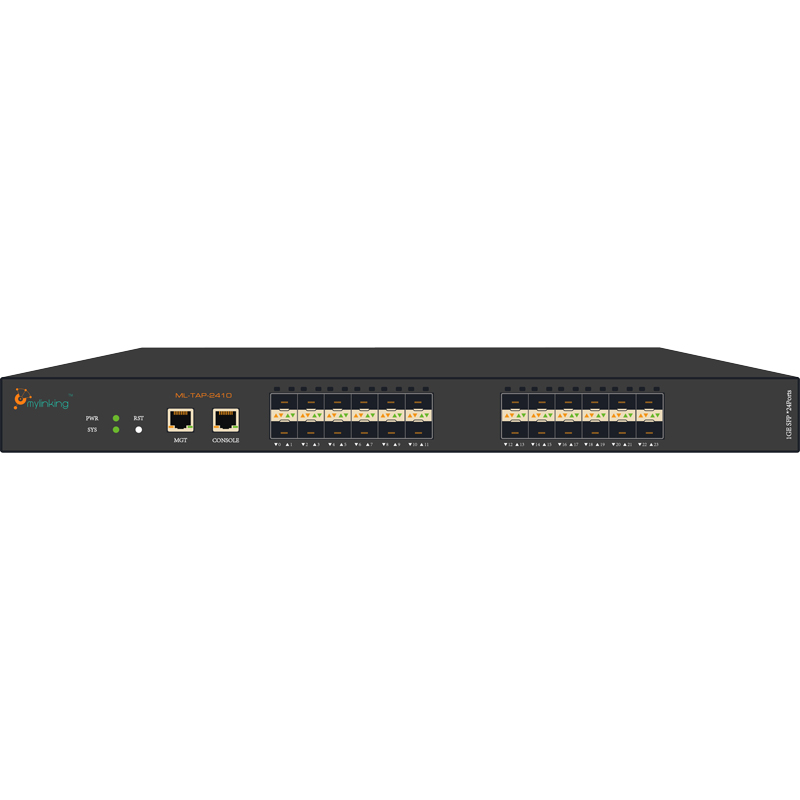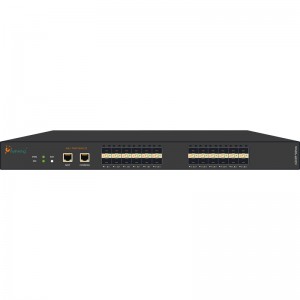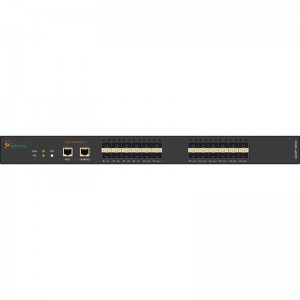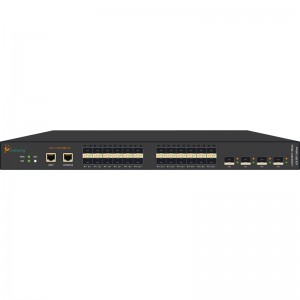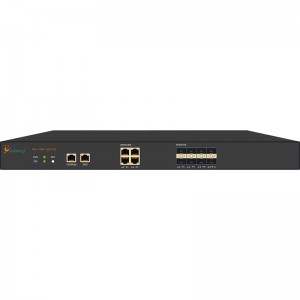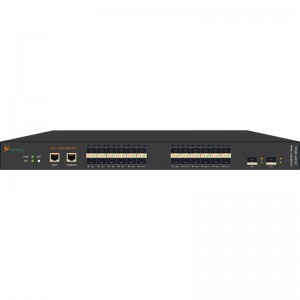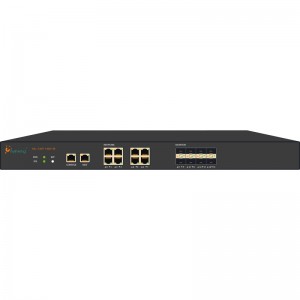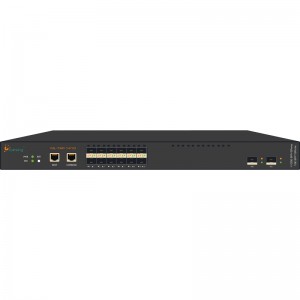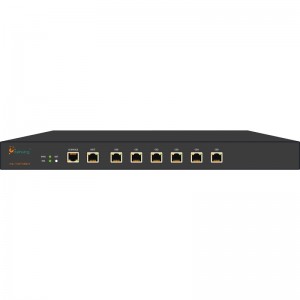Mylinking™ Network Tap ML-TAP-2401
24*GE SFP, Max 24Gbps
1- Overviews
- A full visual control of Data Acquisition device(24*GE SFP slots)
- A full Data Scheduling Management device(duplex Rx/Tx processing)
- A full pre-processing and re-distribution device(bidirectional bandwidth 24Gbps)
- Supported collection & reception of link data from different network element locations
- Supported collection & reception of link data from different switch routing nodes
- Supported raw packet collected, identified, analyzed, statistically summarized and marked
- Supported to realize irrelevant upper packaging of Ethernet traffic forwarding, supported all kinds of Ethernet packaging protocols, and aslo 802.1q/q-in-q, IPX/SPX, MPLS, PPPO, ISL, GRE, PPTP etc. protocol packaging
- Supported raw packet output for monitoring equipment of BigData Analysis, Protocol Analysis, Signaling Analysis, Security Analysis, Risk Management and other required traffic.

ML-TAP-2401
2- System Block Diagram
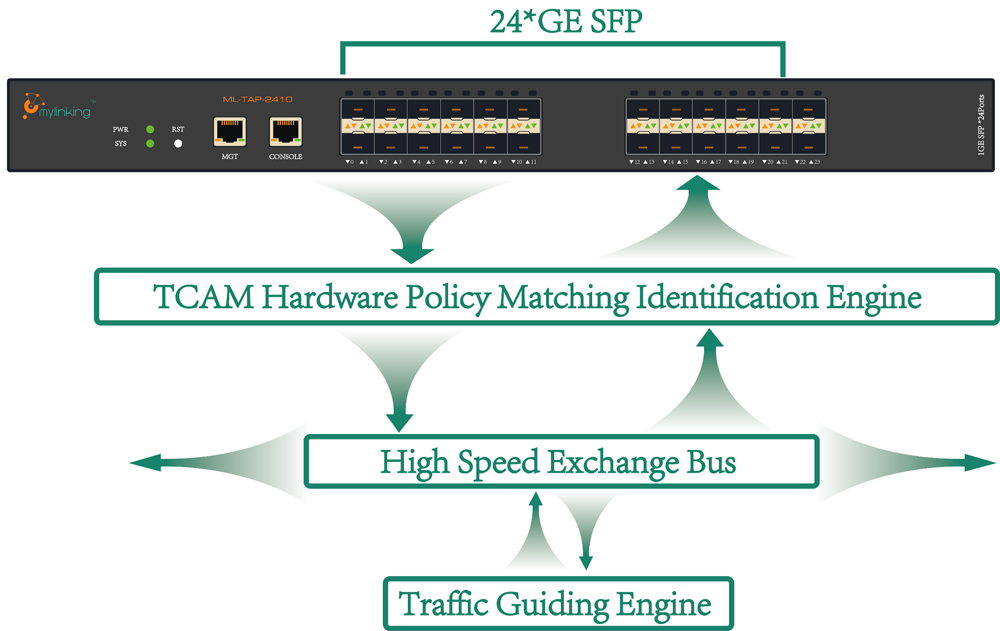
3- Operating Principle
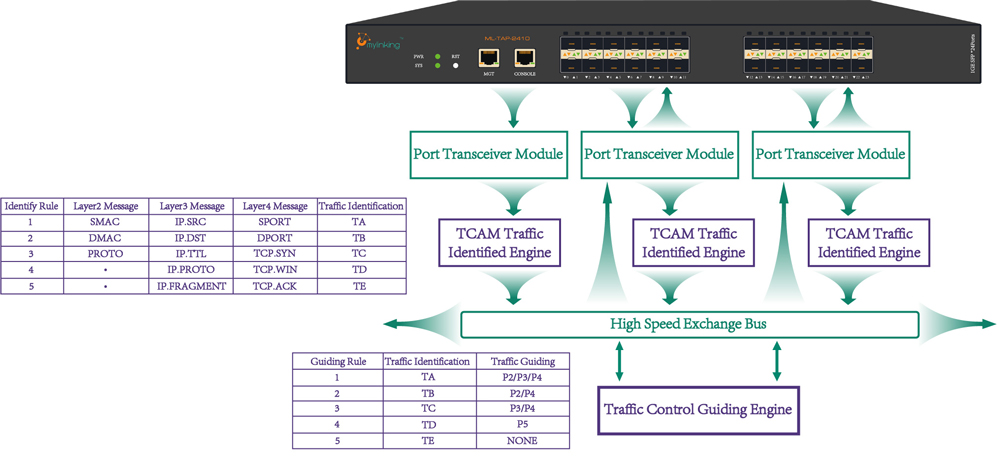
4- Intelligent Traffic Processing Abilities

ASIC Chip Plus TCAM CPU
24Gbps intelligent traffic processing capabilities

GE Acquisition
Max 24*GE ports Rx/Tx duplex processing, up to 24Gbps Traffic Data Transceiver at same time, for network Data Acquisition, simple Pre-processing

Data Replication
Packet replicated from 1 port to multiple N ports, or multiple N ports aggregated, then replicated to multiple M ports

Data Aggregation
Packet replicated from 1 port to multiple N ports, or multiple N ports aggregated, then replicated to multiple M ports

Data Distribution
Classified the incoming metdata accurately and discarded or forwarded different data services to multiple interface outputs according to user’s predefined rules.

Data Filtering
Supported L2-L7 packet filtering matching, such as SMAC, DMAC, SIP, DIP, Sport, Dport, TTL, SYN, ACK, FIN, Ethernet type field and value, IP protocol number, TOS, etc. also supported flexible combination of up to 2000 filtering rules.

Load Balance
Supported load balance Hash algorithm and session-based weight sharing algorithm according to L2-L7 layer characteristics to ensure that the port output traffic dynamic of load balancing

UDF Match
Supported the matching of any key field in the first 128 bytes of a packet. Customized the Offset Value and Key Field Length and Content, and determining the traffic output policy according to the user configuration
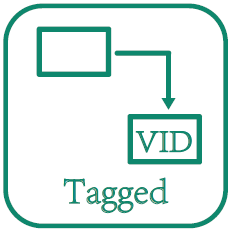
VLAN Tagged

VLAN Untagged
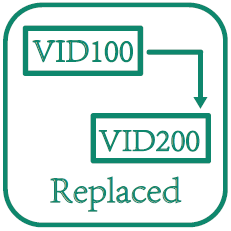
VLAN Replaced
Supported the matching of any key field in the first 128 bytes of a packet. The user can customize the offset value and key field length and content, and determine the traffic output policy according to the user configuration.
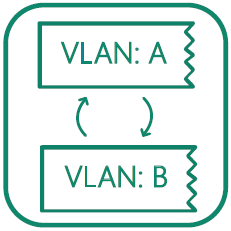
MAC Address Replacement
Supported the replacement of the destination MAC address in the original data packet, which can be implemented according to the user's configuration

3G/4G Mobile Protocol Recognition/Classification
Supported to identify mobile network elements such as (Gb, Gn, IuPS, S1-MME, S1-U, X2-U, S3, S4, S5, S6a, S11, etc. interface). You can implement traffic output policies based on features such as GTPV1-C, GTPV1-U, GTPV2-C, SCTP, and S1-AP based on user configurations.

Ports Healthy Detection
Supported real-time detection of the service process health of the back-end monitoring and analysis equipment connected to different output ports. When the service process fails, the faulty device is automatically removed. After the faulty device is recovered, the system automatically returns to the load balancing group to ensure the reliability of multi-port load balancing.
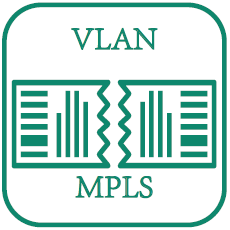
VLAN, MPLS Untagged
Supported the VLAN, MPLS header in the original data packet is stripped and output.

Tunneling Protocol Identify
Supported automatically identify various tunneling protocols such as GTP / GRE / PPTP / L2TP / PPPOE. According to the user configuration, the traffic output strategy can be implemented according to the inner or outer layer of the tunnel

Unified Control Platform
Supported mylinking™ Visibility Control Platform Access

1+1 Redundant Power System(RPS)
Supported 1+1 Dual Redundant Power System
5- Mylinking™ Network Tap Typical Application Structures
5.1 Mylinking™ Network Tap Hybrid Acquisition Application (as following)
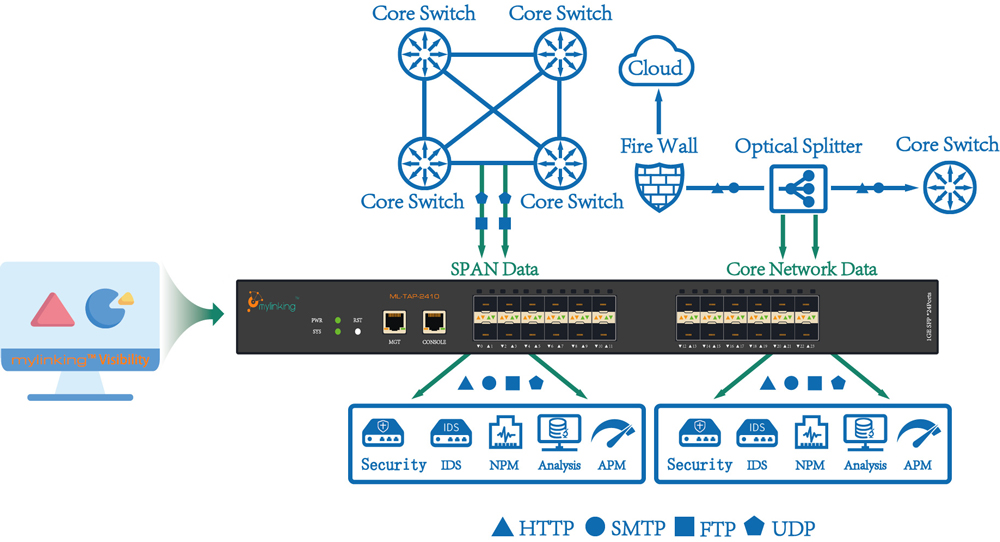
5.2 Mylinking™ Network Tap Customazition Traffic Monitoring Application(as following)
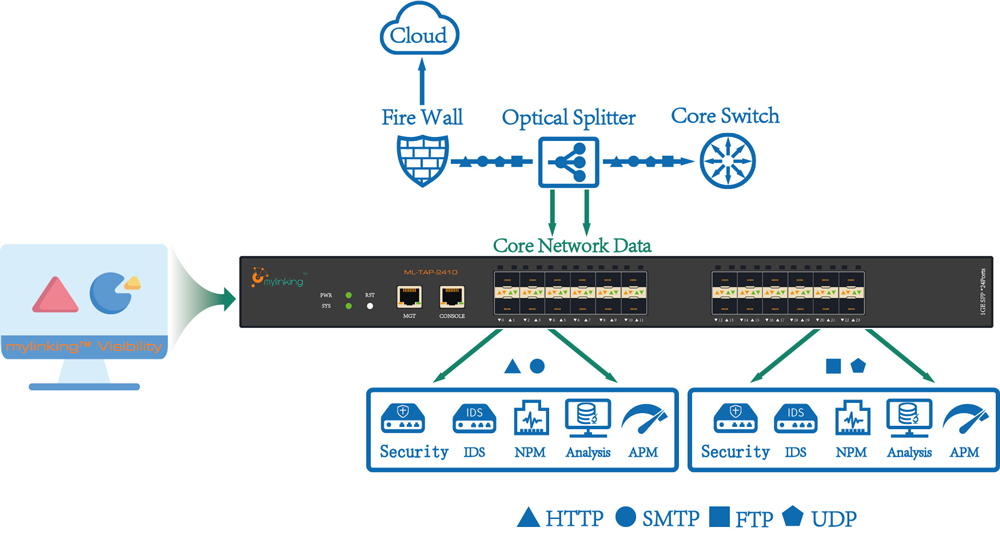
6- Specifications
|
Mylinking™ Network Tap NPB/TAP Functional Parameters |
||
| Network Interface | GE ports |
24*GE SFP slots |
| 10GE ports |
- |
|
| Deployment mode | SPAN monitoring input |
support |
| In-line mode |
support |
|
| Total QTYs interface |
24 |
|
| Traffic replication / aggregation / distribution |
support |
|
| Link QTYs supporting Mirror replication / aggregation |
1 -> N link traffic replication (N <24) N-> 1 link traffic aggregation (N <24) G Group(M-> N Link) traffic replication and aggregation [G * (M + N) <24] |
|
|
Functions |
Distribution based on traffic identification |
support |
| Distribution based on IP / protocol / port Five tuple traffic identification |
support |
|
| Distribution strategy based on protocol header the key labeled traffic identifies |
support |
|
| Strategic distribution based on deep message content identification |
support |
|
| Support Ethernet encapsulation independence |
support |
|
| CONSOLE Network Management |
support |
|
| IP/WEB Network Management |
support |
|
| SNMP V1/V2C Network Management |
support |
|
| TELNET/SSH Network Management |
support |
|
| SYSLOG Protocol |
support |
|
| User authentication function |
Password authentication based on user name |
|
|
Electric(1+1 Redundant Power System-RPS) |
Rated supply voltage |
AC110-240V/DC-48V [Optional] |
| Rated power frequency |
AC-50HZ |
|
| Rated input current |
AC-3A / DC-10A |
|
| Rated power function |
150W(2401: 100W ) |
|
|
Environment |
Operating Temperature |
0-50℃ |
| Storage Temperature |
-20-70℃ |
|
| Operating Humidity |
10%-95%, Non-condensing |
|
|
User Configuration |
Console Configuration |
RS232 Interface, 9600,8,N,1 |
| Password authentication |
support |
|
|
Rack Height |
Rack space (U) |
1U 460mm*45mm*440mm |
7- Order Information
ML-TAP-2401 mylinking™ Network Tap 24*GE SFP ports
ML-TAP-1410 mylinking™ Network Tap 12*GE SFP ports plus 2*10GE SFP+ ports
ML-TAP-2610 mylinking™ Network Tap 24*GE SFP ports plus 2*10GE SFP+ ports
ML-TAP-2810 mylinking™ Network Tap 24*GE SFP ports plus 4*10GE SFP+ ports
FYR: Comparison of different types of interfaces for adding or stripping VLAN tags
|
HOW EACH TYPE OF INTERFACE HANDLES DATA FRAMES? |
|||
|---|---|---|---|
|
Interface Type |
Rx Message without Tag Process |
Rx Message with Tag Process |
Tx Frame Process |
| Access Interface | Receive the message and type the default VLAN ID |
• Receive the message when the VLAN ID is the same as the default VLAN ID. • discard the text when the VLAN ID is different from the default VLAN ID. |
First strip the PVID Tag of the frame and then send it. |
| Trunk Interface |
• type the default VLAN ID and receive the message when the default VLAN ID is in the list of VLAN ids that are allowed to pass. • type the default VLAN ID and discard the text when the default VLAN ID is not in the list of VLAN ids that are allowed to pass. |
• receive the text when the VLAN ID is in the list of VLAN ids that the interface allows to pass. • discard the text when the VLAN ID is not in the list of VLAN ids that the interface allows to pass through. |
• when the VLAN ID is the same as the default VLAN ID and is the VLAN ID allowed by the interface, remove the Tag and send the message. • when the VLAN ID is different from the default VLAN ID and is the VLAN ID allowed by the interface, keep the original Tag and send the message. |
| Hybrid Interface |
• type the default VLAN ID and receive the message when the default VLAN ID is in the list of VLAN ids that are allowed to pass. • type the default VLAN ID and discard the text when the default VLAN ID is not in the list of VLAN ids that are allowed to pass. |
• receive the text when the VLAN ID is in the list of VLAN ids that the interface allows to pass. • discard the text when the VLAN ID is not in the list of VLAN ids that the interface allows to pass through. |
The message is sent when the VLAN ID is the VLAN ID that the interface allows to pass through. You can use commands to set whether to send with a Tag or not. |

